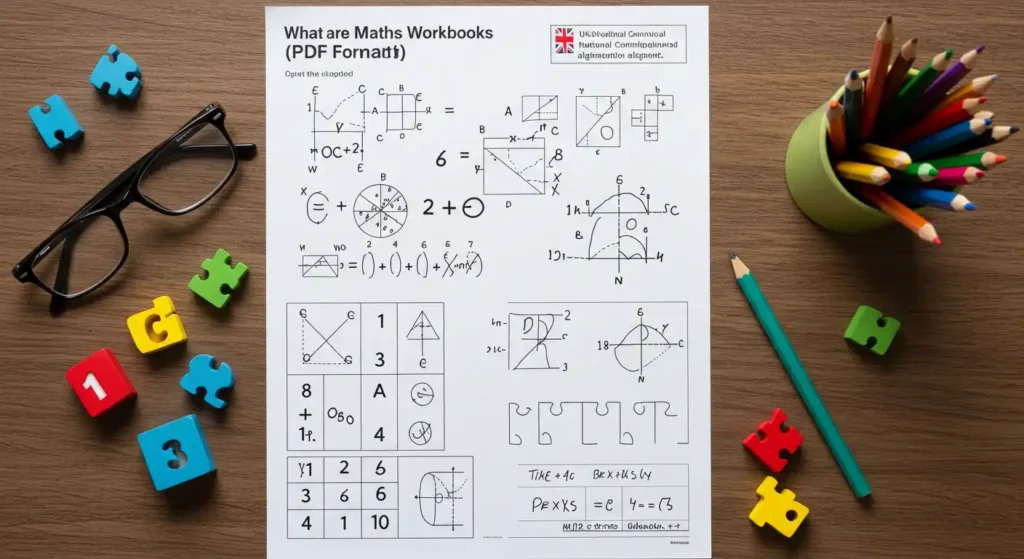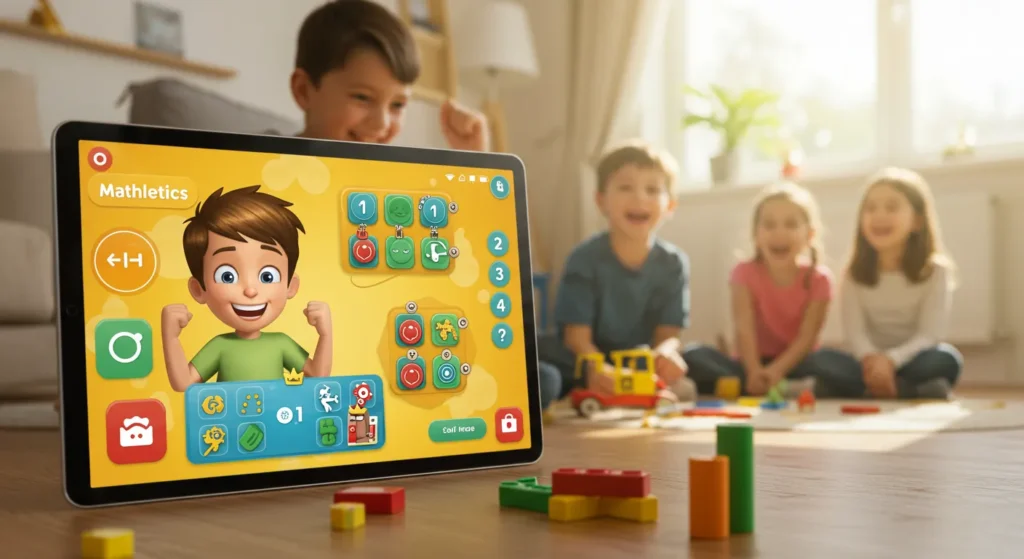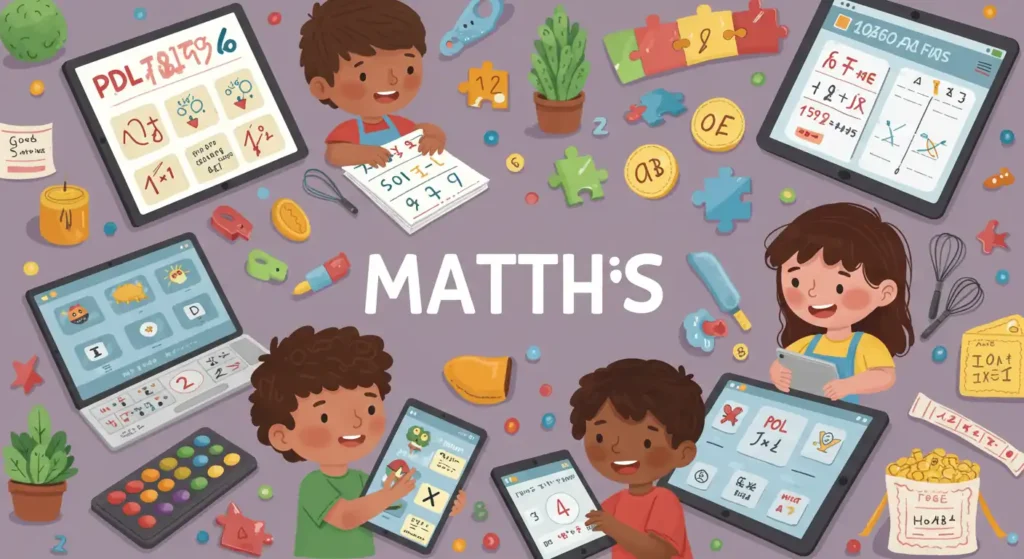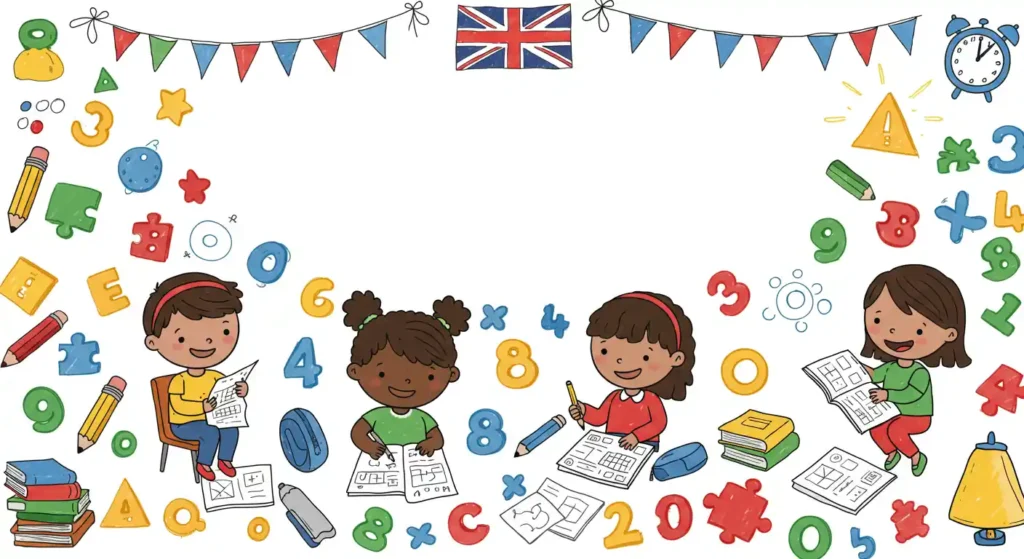Math Lessons That Make Learning Fun for Kids in the UK
Are you searching for ways to make maths engaging for your child? You’re not alone. Many UK parents face the same challenge: how to help their kids not just learn maths, but genuinely enjoy it. Whether you’re a parent, teacher, or tutor, this guide will introduce you to fun, interactive math lessons and resources (including printable PDF maths workbooks) that can transform how your child approaches learning. Let’s explore how to make maths exciting while building essential skills, all tailored specifically for the UK curriculum.
Why Fun Math Lessons Matter for Kids

Maths is more than just numbers; it’s a critical skill that shapes how children understand the world.
Unfortunately, traditional teaching methods often make it feel intimidating or dull.
Fun and interactive maths lessons can reverse this by:
- Boosting engagement: Kids are more likely to stay focused when they enjoy the activity.
- Building confidence: Fun exercises help children build skills without fear of failure.
- Encouraging critical thinking: Creative activities develop problem-solving abilities.
- Supporting long-term retention: When lessons are enjoyable, kids remember concepts better.
In the UK, where maths proficiency plays a key role in education goals (including SATs and GCSEs), finding engaging resources is more important than ever. That’s where innovative teaching strategies and tools like PDF maths workbooks come into play.
What Are Maths Workbooks (PDF Format)?

Maths workbooks are structured collections of exercises, puzzles, and activities designed to teach specific maths skills. When offered in PDF format, these workbooks become highly versatile. Here’s why:
- Printable: Print only the pages you need, whether for quick practice or an entire lesson plan.
- Portable: Store them on any device and access them anytime, anywhere.
- Customisable: Select the activities that suit your child’s pace and level.
- Cost-effective: Many PDF workbooks, like the ones found here for just £1, are budget-friendly while delivering excellent value.
From counting for early learners to algebra for older students, these digital solutions cover a range of skills to suit children at different stages.
Top Benefits of Using Maths Workbooks (PDFs) for UK Kids
As someone who has spent over 20 years working in educational content, I’ve seen how accessible and effective PDF workbooks can be for parents and educators. Here’s why they stand out:
1. Align with the UK National Curriculum
One of the biggest challenges for UK parents is finding resources that match what children are learning in schools. Many PDF maths workbooks are specifically designed to align with the UK curriculum, ensuring your child practices relevant skills. For example, the Grade 3 Maths Workbook includes exercises on fractions, multiplication, and problem-solving, which are all key components of Year 3 maths.
2. Ideal for Home Learning
With more parents embracing home learning or supplementing school education, workbooks provide a structured yet flexible approach. A PDF format helps parents easily integrate activities into their child’s daily routine without needing specialised teaching skills.
3. Encourages Independent Practice
Workbooks empower kids by giving them tools for self-paced learning. Through interactive exercises, children can practice independently while parents monitor progress.
4. Affordable and Accessible
Let’s face it—resources like tutoring can be expensive. High-quality yet affordable options, such as £1 PDF workbooks, make maths practice accessible to families across the UK.
For more guidance on using digital learning tools effectively, the UK Department for Education offers additional resources.
How to Choose the Right Maths Workbook
Not all maths workbooks are created equal. Here are key factors to consider when selecting the perfect resource for your child:
- Level: Match the workbook to your child’s school year or ability level. For instance, a Grade 1 Maths Workbook is ideal for early learners mastering basic operations.
- Focus: Identify target areas—fractions, geometry, word problems, etc.—and choose a workbook that emphasises those skills.
- Engagement: Look for interactive elements like puzzles, games, and challenges to keep learning fun.
- Reviews: Check feedback from other UK parents to gauge effectiveness and usability.
Pro Tip: Start small. Download a single workbook to test whether it fits your child’s learning style before committing to a series.
You can also check parent forums like Mumsnet Education for workbook reviews and tips from UK families.
Fun Maths Activities to Supplement Workbooks

While workbooks are excellent tools, adding variety with fun activities can keep the learning process exciting. Here are a few ideas:
1. Maths Treasure Hunt
Create a scavenger hunt where kids solve maths problems to find the next clue. This activity combines problem-solving with physical movement, making it ideal for younger children.
2. Interactive Math Apps
Apps like Mathletics and Prodigy offer gamified experiences that complement workbook exercises. These platforms provide real-time feedback, making them great for self-paced learning.
3. Family Maths Nights
Dedicate one evening a week to family maths activities. Play board games like Monopoly or use flashcards to create a competitive yet fun atmosphere.
4. Maths Baking
Turn your kitchen into a maths lab. Teach fractions, measurements, and ratios while baking cookies or cakes. It’s a hands-on way to demonstrate real-world applications of maths.
Comparison of Popular Maths Workbook Resources
| Product | Features | Pros | Cons | Ideal For |
|---|---|---|---|---|
| 100 Math Exercises for Grade 1 | Basic addition, subtraction, and counting exercises | Printable, affordable (£1), beginner-friendly | Limited advanced content | Early learners (Ages 5–7) |
| Grade 3 Maths Workbook | Fractions, multiplication, and problem-solving | Aligned with UK curriculum, engaging | Requires parental oversight for younger kids | Year 3 students |
FAQs
Are PDF maths workbooks suitable for all learning styles?
Yes, PDF workbooks are versatile and can be adapted for various learning styles. For example, visual learners benefit from colourful diagrams, while tactile learners enjoy hands-on activities like cutting and pasting.
Can these workbooks replace traditional school lessons?
No, they are designed to supplement formal education. Workbooks provide additional practice and reinforcement, but they shouldn’t replace classroom instruction.
Are there free maths workbook options?
While some free options exist, paid workbooks often offer better quality and alignment with the UK curriculum. Affordable options, such as £1 PDF workbooks, provide excellent value.
How do I keep my child motivated to complete workbooks?
Incorporate rewards, gamify the process, or pair workbooks with interactive tools like apps or games to keep the experience engaging.
Conclusion: Make Maths Fun and Affordable
Helping your child develop a strong foundation in maths doesn’t have to be a struggle. With the right resources, like affordable PDF workbooks and engaging activities, you can make learning enjoyable and effective. Whether you’re looking to reinforce classroom lessons or introduce new concepts, these tools are designed to support your child’s success.
Ready to take the next step? Download your first workbook now for just £1 and start building your child’s confidence in maths today!

